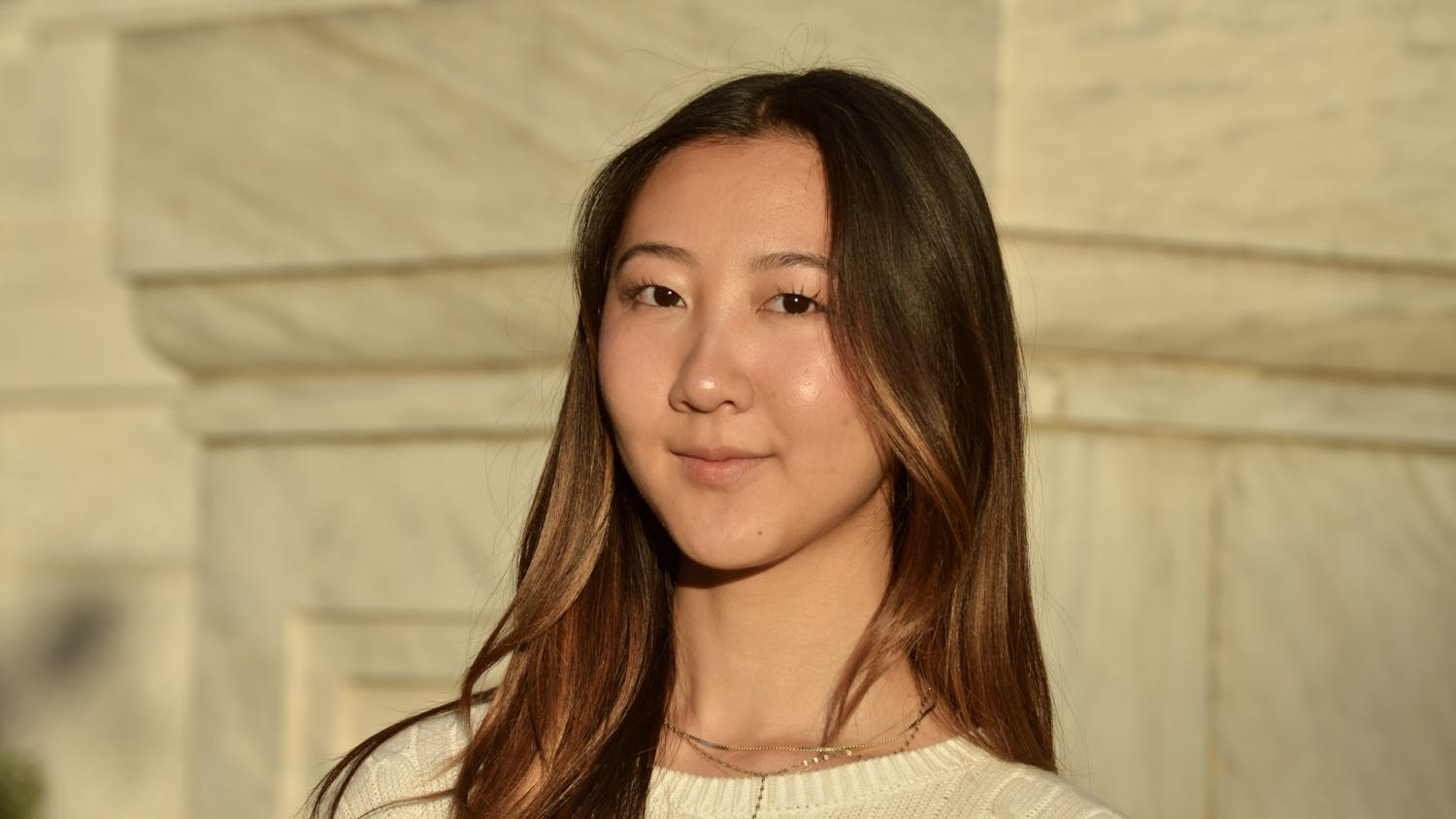By now every student living on campus must know that AU has banned smoking from the residence halls and their front porches, and that the Eagle's Nest has stopped selling cigarettes. For freshmen, they may have learned about the change at New Student Orientation, from friends, from admissions materials, or from this newspaper, either in early July or as recently as a week ago. Most upperclassmen knew that changes were coming, especially the "Smoke Free in 2003" policy for the residence halls, but few, if any, knew that the Eagle's Nest would stomp out cigarette sales, too. Either way, we now all know about the new policies-but whether you like the rules or not it is important for all students and, in fact, for faculty and staff, to think about the changes and how the University came to make those changes.
We support the University's decision to bar smoking from the residence halls. Many-if not most-colleges and universities already prohibit smoking in their dorms and AU's decision to follow the national anti-smoking trend should surprise no one. Public smoking bans have become widespread over the past decade, gaining national prominence and acceptance after states such as California and New York began passing and enforcing anti-smoking laws-and the national smoke-out is only becoming larger. In 1985 there were 159 communities nationwide with some sort of anti-smoking restriction; today there are around 1,000. Friendship Heights, just a stop down the Red Line, has had one of the most restrictive smoking bans in the country for the past two years. In the residence halls smoking has led to fires, increased and costly maintenance (replacing ceiling tiles, carpets, repainting walls, furniture marred by burns), and smoking floors were long the worst floors on campus, both in terms of damage and in terms of judicial issues. But the smoking students did not foot the bill for this damage so much as everyone else did, just as fires caused by smokers forced everyone else out into the cold, rainy night, while the smoke itself had a way of creeping into non-smokers' rooms. So we applaud the University's decision to end smoking inside the dorms.
But we do have certain reservations. We believe that though the University has banned smoking in or immediately by the residence halls this year students and staff will see that in two or three years smoking will be banned from other places on campus-in front of the class buildings, on the main quad, in the Letts-Anderson Quad, or campus-wide altogether. It is not that we necessarily oppose such moves, but while we believe that AU had the right to make the changes it did this year, we believe that more blanket restrictions in the future would require student and staff approval rather than be implemented via administrative diktat. We understand that Housing and Dining Programs, the University office that runs the residence halls, Eagle Buck$, dining facilities, and the Eagle's Nest, has the right to decide whether to sell tobacco products in their convenience store. But we wonder whether banning those sales could create a black market for cigarettes on campus, we wonder how much money the school is losing as a result of the cigarette ban, and we wonder what other bans-tobacco-related or otherwise-could be looming just down the pike.
This is not an unfounded suspicion or fear. Many students-most, probably-are unaware that nearly two years ago, in a speech to the University community, President Ladner unveiled a 15-point plan outlining his vision for AU's future (available on the President's Office Web site). It is a telling document because as upperclassmen look back on their years at AU they can see many of the goals already coming to fruition. In his 15th point Ladner outlines his views on the role of physical fitness and general health in the University's future. He spoke of the "presumed status of fitness activities as a purely private matter" and argued in favor of including "in the educational experience of our students habits of fitness that integrate a sound mind with a sound body." This rationale has been cited by Housing and Dining Programs as being in part behind their moves, it has been cited by others in discussing the possibility of creating University-wide physical fitness classes (read: P.E.), and it is clearly not beyond the realm of possibility that other administrators will soon cite it in order to ban smoking, or other activities, from their respective realms. Again, it is not that these decisions are necessarily wrong; rather, we simply believe that such far-reaching policies should be decided upon by the University community and not a few administrators acting on the authority of others.
AU's administrators are not villains in this situation. They, like us, have a long-term investment in the University-and in many cases they have been here longer than us and will remain long after we are gone. We will be alumni, but in a professional sense so are they. So we understand why smoking was banned in the residence halls. But it crosses a line for anonymous administrators, citing an old speech from President Ladner (to whom most students cannot directly appeal), to restrict a lawful activity like smoking simply because they don't think it's good for us. It's no different than creating our diets, dictating our budgets, or planning our weekends for us. There is a balance to be struck between AU's party days of yore and being a wellness-crazed Petri dish for social engineering-and it starts with placing the AU community as an integral part of the decision-making process, both listening to input from us and then translating that input into University policy.




